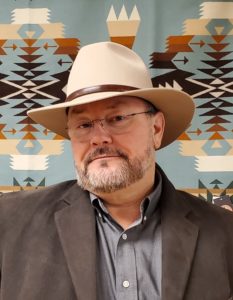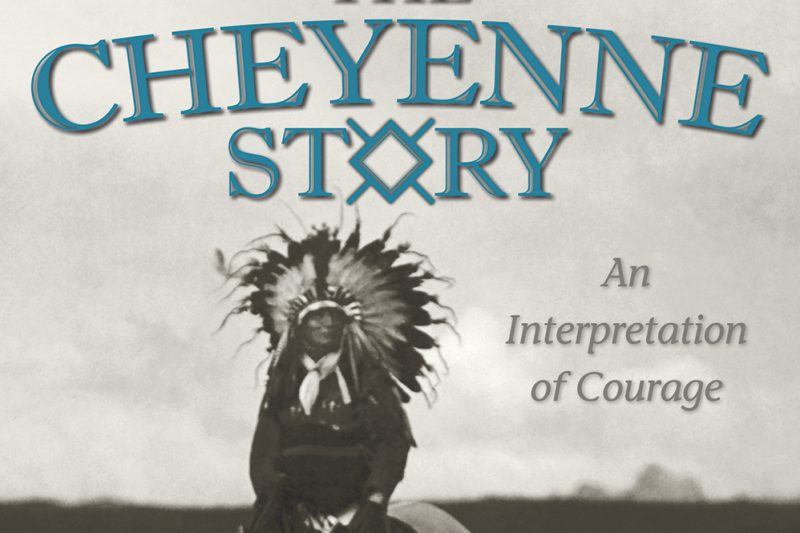Gerry Robinson’s powerful work of historical fiction, The Cheyenne Story: An Interpretation of Courage, was awarded the National Cowboy Museum’s 2020 Western Heritage Award for Best Western Novel. The Western Heritage Awards honor individuals who have made significant contributions to western heritage through creative works in literature, music, television, and film that share the great stories of the American West.

Robinson is a Helena resident and enrolled Northern Cheyenne tribal member who was raised on the reservation in Lame Deer. His debut novel, published by Farcountry Press, is a compelling and balanced narrative that presents a fresh look at the origins and devastating results of the U.S. Army’s late November 1876 attack on the Cheyenne – the penultimate event that led to their temporary exile to Oklahoma.
The story begins five months to the day after Custer’s defeat by the Northern Cheyenne and seamlessly alternates between two narrators: Little Wolf, the Cheyenne Sweet Medicine Chief, and Bill Rowland, Little Wolf’s brother-in-law and an interpreter in the employ of the U.S. Army.
As Rowland reluctantly approaches the Cheyenne’s winter encampment, he’s flanked by a unit of overzealous soldiers under the direction of the increasingly desperate General Crook. At the same time, Little Wolf urgently warns his people to move their camp to safer ground.
A prideful headman, Kit Fox, rebuffs Little Wolf’s warnings and insists the tribe stay put and spend the night celebrating the success of a recent raid. When Crook’s party attacks the camp the next morning, the Cheyenne are sleep-deprived and woefully unprepared, resulting in a lopsided battle and frantic escape into the Bighorn Mountains.
What follows is the Cheyenne’s harrowing journey north through a blizzard as they fight for survival. Meanwhile, Rowland makes a pensive, self-reflective trek back to Fort Robinson where he is greeted by his Cheyenne wife and children and eventually reunited with his Northern Cheyenne relatives before the Army sends them all packing to Oklahoma.
To date, the full story of the Cheyenne people, post-Little Bighorn to the establishment of the Northern Cheyenne Reservation, has not been told in its entirety and has never been written about by a member of the tribe.
“This is an important contribution to our tribal history,” said Mina Seminole, cultural director at Chief Dull Knife College in Lame Deer, in Native Sun News Today. “It is so important to tell our own stories … Maybe this will encourage others of us to write more. This is a real accomplishment for a Cheyenne to do this. There are other books, but they were told to white authors.”
Robinson – the great-great grandson of Bill Rowland and Little Wolf’s great-great nephew – believes “being able to tell our own story helps begin a long-overdue healing process.” He spent 16 years researching and writing to deliver a historically, culturally, and emotionally accurate retelling of how the Cheyenne were extricated from their Northwest corner of the Great Plains.
He also worked closely with tribal elders and cultural leaders to accurately and seamlessly incorporate the Cheyenne language into his text. Robinson’s characters use the Cheyenne language in their dialogue, and the reader comes to know and understand its meanings contextually and by employing the accompanying glossary of Cheyenne words and phrases found at the back of the book.
Raised at the heart of the Northern Cheyenne Indian Reservation, Robinson grew up hearing fragmented stories about his ancestors. He devoted nearly 20 years of his life to researching, traveling the country, and reaching back through time to reclaim his heritage. A published historical writer and member of Western Writers of America, the author is currently working on the next book in the trilogy, which will encompass the second leg of the Northern Cheyenne’s fraught journey.
